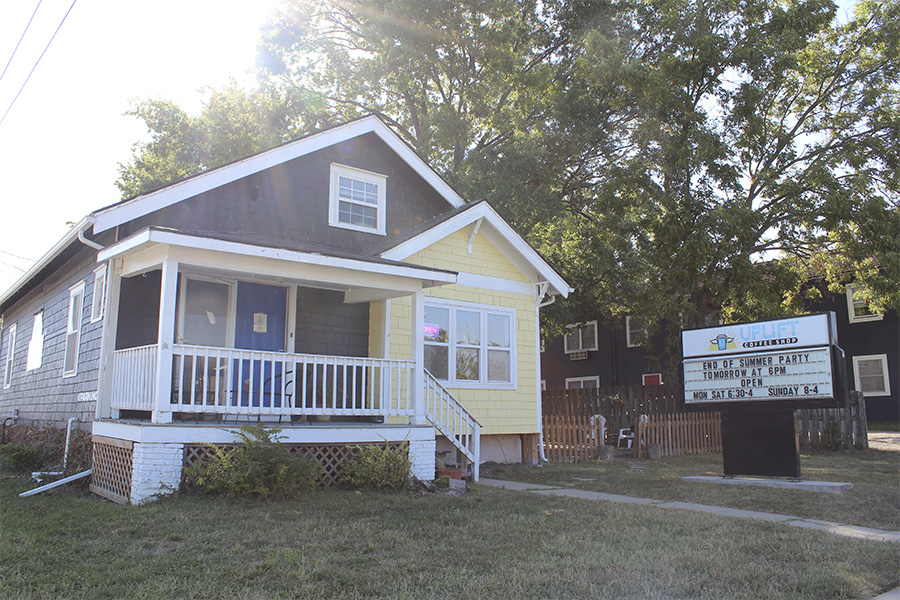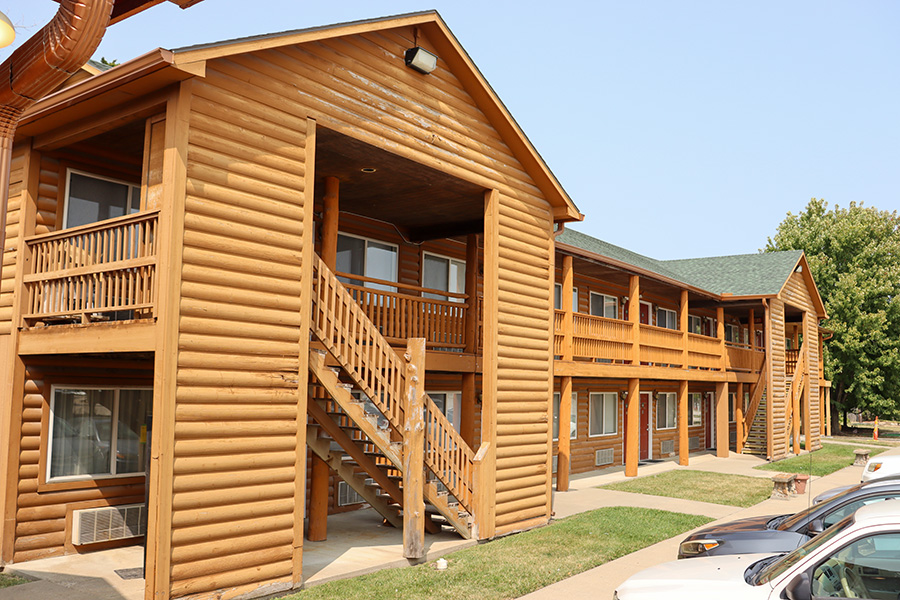02/08/08
It all depends on the kind of trip you want to take.
At least that’s what Associate Dean of Students Teresa Clounch thinks about finding your niche at Baker.
“When students go through the search process, they often have a list of things they are looking for in a university,” she said. “Sometimes they are looking for certain degree programs, but often they are looking for connections or things to get involved in.”
One such connection is greek life.
“I do believe that with greek life there is an opportunity to connect socially,” she said. “There’s research to say that students are likely to stay if they make connections.”
Forming ties with the Baker community is one reason greeks make up the cohort with the highest retention rates.
“Students stay because they create attachments, they find a good fit,” Judy Smrha, assistant dean of institutional effectiveness, said. “The more connections they make, the more likely they are to stay.”
In fall 2007, 87 new members joined the greek community, and 95.4 percent of those students returned to Baker for the spring semester.
“At Baker our history has been that greek organizations tend to help people create attachments,” Smrha said. “It’s easy to fit in here if you’re greek. The organizations really care.”
Not to mention the friendships made through greek houses.
“I think there are several factors that play into greek life,” Director of Multicultural Affairs Ron Holden said. “If you are in a greek organization, it’s an extra tie to the university so you’re less likely to want to leave your friends and the bonds you have made.”
However, some students do decide to leave.
“Sometimes students feel that the university is not right for them,” Clounch said. “Do I think Baker is a great place to be? Yes. But sometimes when a student starts into a program, they find out it’s not what they want.”
Former student Rachael McCain was one such student.
“I decided over summer break that I could not get the education I wanted from Baker,” she said. “I received a really good education, but it wasn’t what I wanted.”
McCain, a former member of the Phi Mu sorority, is now studying occupational therapy at Newman University.
“I really liked the community at Baker,” she said. “If I could have gotten the degree I wanted at Baker, I would have stayed.”
The average first semester retention rate for non-greek freshmen is 85.6 percent, compared to 95.1 percent of greek freshmen who return for the spring semester.
Clounch said participating in greek organizations gives students the opportunity to spend time with students in their own grade with similar interests.
Sigma Phi Epsilon President Casey Smith said the connection between members of the same pledge class extends beyond the fraternity or sorority.
“It gives you a home away from home. I know a lot of the guys think the same thing,” he said. “If you don’t know somebody, one of your brothers or sisters will. It turns one freshman into about 15, when they join a pledge class.”
Clounch said other benefits for joining a greek organization include academics.
“They have a focus on academics as well. There is incentive to maintain grades so you can be a member of the greek community,” she said.
Although greeks have the highest retention rates among groups on campus, Smrha said students do not have to be greek to fit in on campus.
“It’s not as if greeks are the only students to make connections,” she said.
But McCain said greek life doesn’t always provide reasons to stay at Baker.
“My relationships didn’t really last,” she said. “I loved the city that I was in, but I haven’t stayed in contact with many people.”
Smith said greek students who leave usually don’t leave because of greek life.
“Most of the time, I don’t think it’s the house,” he said. “I think it’s the major or it’s just that plans change.” Greeks do opt to leave Baker, but Holden said it’s not always the school’s fault.
“I think as far as students go, each student has their own individual reason for leaving,” he said.
Smrha said that although greek life accounts for the highest number of returning freshmen, those students who opt to leave, whether greek or not, may not have fit here to begin with.
“We didn’t fail them,” she said. “There are people who choose not to go greek for a reason, maybe it’s the same reason they choose not to stay at Baker.”






